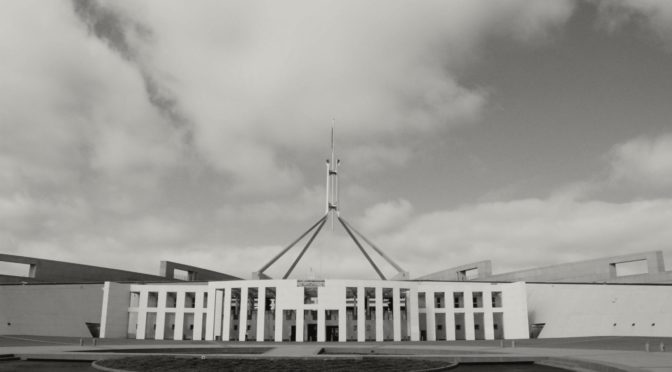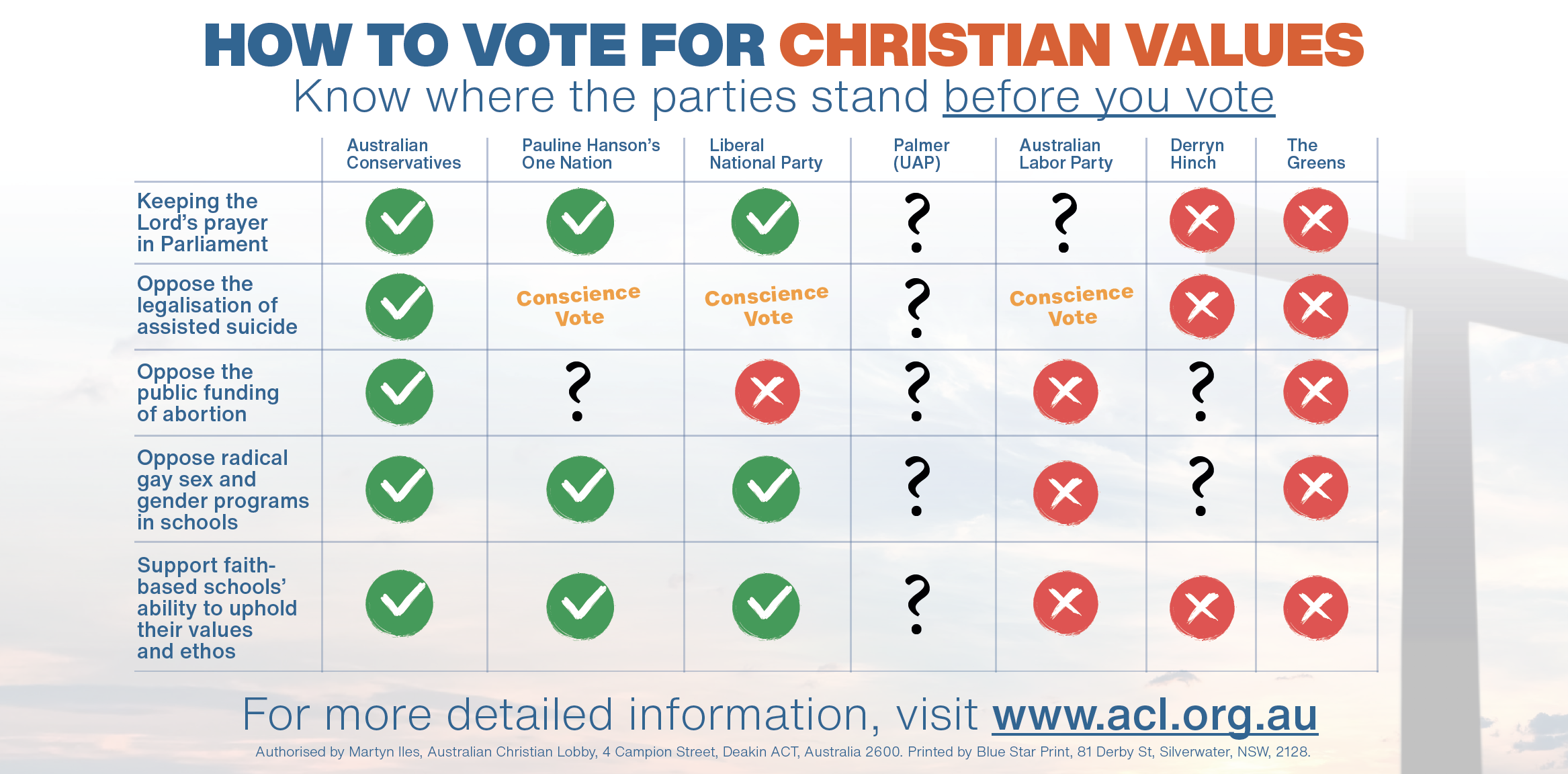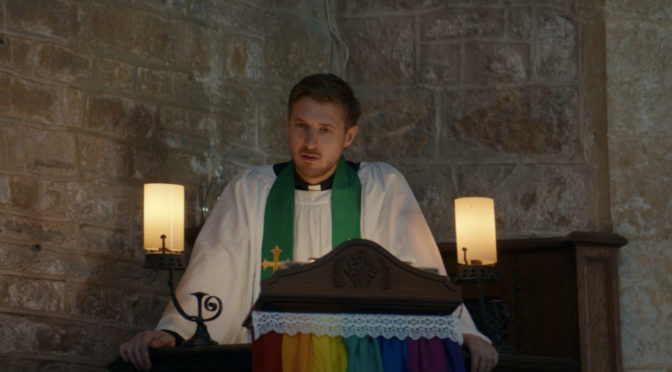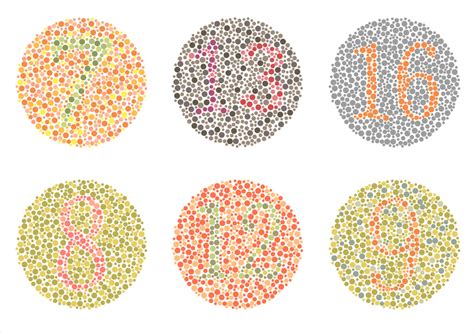I am a religious radical. I confess that my religious beliefs are my primary motivation for how I live in this world, and I believe my actions to be consistent with bringing about the end of the world as we know it. But. Don’t panic.

In How (Not) to be Secular, Christian Philosopher James K.A Smith unpacks fellow philosopher Charles Taylor’s theory that the modern, secular, world has collapsed everything supernatural into a sort of ‘rational’ natural basket.
“It is a mainstay of secularization theory that modernity “disenchants” the world — evacuates it of spirits and various ghosts in the machine. Diseases are not demonic, mental illness is no longer possession, the body is no longer ensouled. Generally disenchantment is taken to simply be a matter of naturalization: the magical “spiritual” world is dissolved and we are left with the machinations of matter…So the modern self, in contrast to this premodern, porous self, is a buffered self, insulated and isolated in its interiority, “giving its own autonomous order to its life”” — James K.A Smith, How (Not) to be Secular
Or, as Douglas Adams put it in The Restaurant at the End of the Universe.
“My universe is my eyes and my ears. Anything else is hearsay.”
― Douglas Adams, The Restaurant at the End of the Universe
To me, Douglas Adams is a bit like the Lewis/Tolkien of this sort of disenchanted world, perhaps even a bit like the wise teacher in the Bible’s Ecclesiastes. Adams built a fictional cosmos in The Hitchhikers Guide that allows him to fantastically weave his way through the big questions, and implications, of a disenchanted world, giving that helpful piece of advice — “DON’T PANIC” — for anyone who comes to the conclusion that life has no meaning, or that its meaning is 42 (an incorrect answer to “what is 6 times 9”). His point, at one point discussed in a little dialogue between Zaphod and Arthur, is that a world devoid of meaning from beyond itself is a world where a belief in, or search for, a sort of ‘transcendent’ meaning — or any meaning at all — is meaningless, and inaccessible.
“But nothing! Think about it. The Meaning of Life! We get our fingers on that we can hold every shrink in the Galaxy up to ransom, and that’s worth a bundle. I owe mine a mint.”
Arthur took a deep breath without much enthusiasm.
“Alright,” he said, “but where do we start? How should I know? They say the Ultimate Answer or whatever is Forty-two, how am I supposed to know what the question is? It could be anything. I mean, what’s six times seven?”
Zaphod looked at him hard for a moment. Then his eyes blazed with excitement.
“Forty-two!” he cried.
Arthur wiped his palm across his forehead.
“Yes,” he said patiently, “I know that.”
Zaphod’s faces fell.
“I’m just saying that the question could be anything at all,” said Arthur, “and I don’t see how I am meant to know.” — Douglas Adams, The Restaurant at the End of the Universe
One of the implications of this shift is in how we think of the way people are motivated to make choices or decisions. Where, in the past, people saw themselves as actors in a divinely created cosmic play, their position placed, determined, and directed by God’s mysterious plans, now, people assume life is a smorgasbord of choices and we are our own agents, able to place ourselves wherever we want (so we’re more mobile than ever, in terms of social status, education, and physical location, able to determine the course our own life takes, and directing ourselves via our own ethical framework or set of moral rules (sometimes with socially constructed frameworks that make sure other people, or as many other people as possible, enjoy these same freedoms). In this new script every action is ‘political’ because every person is a monarch. According to this new script, no actions are ‘religious’ — even if they are — because religion is just one choice we make among many, and we choose one religion among many equally (in)valid options. Religion, in this secular script, cannot, and should not, be spoken of as a motivating factor for action — because it gets dangerous when it is. In this script religion is, rather, a consequence of action, of choice, rather than a motivator.
“It is folly to say you know what is happening to other people. Only they know, if they exist. They have their own Universes of their own eyes and ears.” — Douglas Adams, The Restaurant at the End of the Universe
There’s been a bit of a secular paradox at play in the reportage of the Parramatta shooting. On the one hand, the government, and a bunch of secular spokespeople, are very keen to eradicate the clear and present danger presented by ‘radicalisation’ — so keen that they’ll throw all sorts of religions into the mix as potential sources for dangerous radicalisation (see Michael Jensen’s piece on the ABC), they’ll even throw poor people like the hypothetical “Karen” under the radicalisation bus in order to protect the masses from these ills. If you break the Internet’s First Commandment “Never read the comments” on that article you’ll see that the discussion sort of proves the point of Jensen’s piece, any religious belief, taken seriously, is dismissed as dangerous.
On the other hand, when speaking of the Parramatta shooting, reporters do not speak of the event as ‘religiously motivated’ but ‘politically motivated’…
“We believe his actions were politically motivated and therefore linked to terrorism.” — NSW Police Commissioner Andrew Scipione, ‘Teen Shooting Linked to Terrorism“
The shooter was ‘politically motivated’ by people he met in a religious place. A place of worship. I’m not claiming that his actions were a necessary product of the religion he aligned himself with by faith, but they were almost certainly a product of his faith. Of his understanding of the world and its end. Obviously there’s a massive link between religion and politics for most people of faith, for good or for ill, but I can’t help but think this plays into a narrative that isolates people of faith and robs us of the dignity that comes from being able to make choices about how we understand life and are understood. As a person of faith, putting myself in the shoes of someone who might be robbed of dignity in this sense, I’d like to offer a few alternatives for ‘deradicalisation’ that don’t involve ‘depersonalisation’… I’d like to suggest that the secular narrative being used to disenchant this narrative with a view to de-radicalising it (making these actions politically motivated (immanent) rather than religiously motivated (transcendent) might actually be counter-productive because it might reinforce a sense that the secular west is not interested in understanding those who don’t subscribe to its disenchanted story. I’d like to suggest that perhaps, even within a secular frame, what would be productive, virtuous, and just response would be to treat the perpetrator — and others — as human agents, giving them the dignity of understanding their choices and motivations, without thinking that doing so would either ‘radicalise’ other like minded people, or insult those who share a similar way of seeing the world as ‘enchanted’ and meaningful through eyes and ears of faith. Maybe a better way forward would be to invite those who share an ‘enchanted’ view of the world — be they Muslims, or people of other faiths — to enter dialogue in the public square that offers alternative ways of seeing the world and its end, through better stories (without shouting them down in angry comment threads).
Secularisation: an exercise in not seeing the emperor’s old clothes
Secularisation in its modern, disenchanted form, and especially the secularist narrative playing out in the analysis of the action of people of faith ends up being a deliberate attempt not to see things as they really are, but also, not to see people as they truly wish to be seen. It fails to give people dignity because it denies them the robes they choose to give context to their actions. When a person of faith acts in a way motivated by that faith the secular narrative is that this is ‘political,’ a category I certainly wouldn’t put first in describing my own actions.
This new narrative is disingenuous and unloving. It doesn’t love ‘political’ actors — or perpetrators — with the kind of just love that requires us to pay real attention to the motivations for action and decide on reasonable and just consequences or solutions. It dehumanises those who do not share the new narrative. It robs a religious person of dignity, stripping their life of the meaning they have ‘chosen’. In this it both undermines the secularist narrative of ‘choice,’ and also deliberately holds ignorance and arrogance in tension — it’s deliberately ignorant, in failing to consider possibilities beyond one’s own ‘eyes and ears’ or beyond a consensus reached by many eyes and ears, and part of this ignorance manifests itself in an arrogant failure to listen to narratives that don’t fit this dominant view. It’s a failure to listen, and a failure to see, other people as they wish to be seen, and perhaps the world as it should be seen.
If the old view of the world was one where the universe was fully clothed in rich, enchanting, meaning, where it was vividly coloured and beautifully formed so that both the emperor wearing the clothes was special, but the designer was clearly a good and creative genius who wished this to be the case, then the new version of the world is one where we, the new emperors, are naked and left to construct an outfit, and dignity, for ourselves.
The secularist assumption is that its those who have stripped off their old clothing who are dressed, while those who hang on to the idea of an enchanted world given meaning by a divine creator, are naked and foolish.
The secular status quo runs a real risk of dehumanising people according to its own account of meaningful humanism, where our sense of what it means to be a person with dignity, a monarch, a ruler of our own tiny kingdom, is caught up in making the decision about how to live and to channel David Foster Wallace, what to worship. In This Is Water, Wallace points out that our new default is to worship things within the world, immanent things, things that will ultimately eat us alive, and that our secular age is structured in such a way that it wants to keep us exercising our freedom, so long as its directed at these immanent things. So long as we don’t rock the boat. But he ponders whether or not this default is really freedom, or if freedom might lie elsewhere, in questioning the default narrative, and the default ‘secular’ gods.
“And the world will not discourage you from operating on your default settings, because the world of men and money and power hums along quite nicely on the fuel of fear and contempt and frustration and craving and the worship of self. Our own present culture has harnessed these forces in ways that have yielded extraordinary wealth and comfort and personal freedom. The freedom to be lords of our own tiny skull-sized kingdoms, alone at the centre of all creation. This kind of freedom has much to recommend it. But there are all different kinds of freedom, and the kind that is most precious you will not hear much talked about in the great outside world of winning and achieving and displaying. The really important kind of freedom involves attention, and awareness, and discipline, and effort, and being able truly to care about other people and to sacrifice for them, over and over, in myriad petty little unsexy ways, every day. That is real freedom. The alternative is unconsciousness, the default setting, the “rat race” – the constant gnawing sense of having had and lost some infinite thing.” — David Foster Wallace, This Is Water
A radical story — motivated by a view of the end of the world
“There is a theory which states that if ever anyone discovers exactly what the Universe is for and why it is here, it will instantly disappear and be replaced by something even more bizarre and inexplicable.
There is another theory which states that this has already happened.”
― Douglas Adams, The Restaurant at the End of the Universe
As he explores Taylor’s understanding of The Secular Age, Smith mentions that part of the movement from an ‘enchanted’ or spiritual sense of reality was a depersonalising move from describing the world as a divine creation (as it had been understood right up to modern times), to simply ‘nature’… a neutral and unthinking thing, at best governed by ‘natural law’…
“The shift from cosmos to universe — from “creation” to “nature” — makes it possible to now imagine meaning and significance as contained within the universe itself, an autonomous, independent “meaning” that is unhooked from any sort of transcendent dependence… Now, from the vantage point of secular humanism, this new interest in nature can look like the next logical step on the way to pure immanence: first distinguish God/nature, then disenchant, then be happy and content with just nature and hence affirm the autonomy and sufficiency of nature. Such a story about the “autonomization” of nature posits a contrast or dichotomy between belief in God and interest in “nature-for-itself”…
Part of the fallout of such a metaphysical shift is the loss of final causality (a cause that attracts or “pulls”), eclipsing any teleology for things/nature. Understanding something is no longer a matter of understanding its “essence” and hence its telos (end). Instead we get the “mechanistic” universe that we still inhabit today, in which efficient causality (a cause that “pushes”) is the only causality and can only be discerned by empirical observation. This, of course, is precisely the assumption behind the scientific method as a way of divining the efficient causes of things, not by discerning “essence” but by empirical observation of patterns, etc. The result is nothing short of “a new understanding of being, according to which, all intrinsic purposes having been expelled, final causation drops out, and efficient causation alone remains””— James K.A Smith, How (Not) To Be Secular
I can understand why people choose to see the world this way though. The universe is vast and intimidating. Douglas Adams goes on and on about infinity in The Restaurant at the End of the Universe, and its to explore just how uncomfortable a view of the universe is if it is very infinite, and we are very finite. There’s this thing in the story called the Total Perspective Vortex which promises to show anyone who attaches their mind to its probes just how small they really are. Trin Tragula built the machine to annoy his wife, but when he plugged her into it, it had disastrous consequences.
“To Trin Tragula’s horror, the shock completely annihilated her brain; but to his satisfaction he realized that he had proved conclusively that if life is going to exist in a Universe of this size, then the one thing it cannot afford to have is a sense of proportion.”
“For when you are put into the Vortex you are given just one momentary glimpse of the entire unimaginable infinity of creation, and somewhere in it a tiny little marker, a microscopic dot on a microscopic dot, which says “You are here.” ― Douglas Adams, The Restaurant at the End of the Universe
This is what happens when we strip the universe of enchantment, of meaning beyond the physical. Suddenly the sheer, immanent, physicality of the universe is intimidating, rather than comforting. It’s better to think of it as uncaring, and uninvolved, and as without an ‘end’ at that point, so that we don’t have to worry about getting the ‘end’ wrong, given our new freedom to choose how to live in it. Robbing the world of an ‘end’ — a telos in the old Greek sense — a purpose — in itself, means we are in the driver’s seat when it comes to creating meaning. We understand the world as we experience it with our eyes and ears, and we, within the world, are free to come up with our own vision for how things should be, and what things are for, and we’re free to direct our own lives. If people come up with some approach to their own life — an understanding of their own purpose, or ‘end’ that is tied to some broader purpose in the universe, some other director giving things purpose, especially a divine purpose, we treat them with suspicion.
And looking around at all the alternative understandings of the purpose of the world posited by religious people — including some Christians — I share a fair amount of this suspicion. I can totally understand why we’d want to take the shortcut of robbing people of their dignity by stripping them of their metaphorical clothes and leaving them naked. Exposing them and their folly for all to see. But when I put myself in the shoes of those seen as ‘exposed’ it leaves me feeling a little empathy for the religiously motivated person. It leaves me thinking that perhaps this strategy might leave other people of faith, who feel the same way about the world, feeling naked and foolish. Which is a brilliant ‘deradicalisation’ strategy. Except that it’s not. Especially if the ‘secular west’ has a habit of pushing the sorts of people who have faith to the margins, away from the benefits of the ‘secular defaults’ which builds a further degree of resentment.
Let’s come back to that alternative strategy — inviting those who share an ‘enchanted’ view of the world to the table to discuss solutions to radicalisation, rather than excluding us by lumping us all in together as potential dangerous radicals who want to see the end of the world as we know it.
For those who see and experience the world as shot through with meaning, the vastness of the universe helps build self-esteem. The universe is the stage in a divine cosmic drama that tells the story of the value of human life to the creator of the universe — one vaster than the universe itself. In this drama, especially the Christian version, the creator of all this steps onto the stage, and takes part in the drama, by laying down his life for the actors he made. The cross of Jesus is a new Total Perspective Vortex that puts us at the centre of a vast and infinite world. It gives the world a new end, both in an understanding of its purpose — as the ground upon which God became incarnate, made himself human, died, and promised to redeem — and it gives us a new understanding of how it all ends. Jesus, by his resurrection, promised to be the ultimate and final solution for this world, inviting those who follow him to ‘take up their cross’ becoming part of the picture of what the end of the world looks like. Eating with a radical Christian should be like eating at the restaurant at the end of the universe — you should see and taste the end of the world.
I confess, I totally buy into this ‘enchanted’ vision of the world. I believe the world is ‘shot through with meaning’ – that it’s a divine creation, carefully maintained, damaged by our selfish ‘default’ following lives and crying out for a solution. I pray God brings that solution every time I say anything remotely like the Lord’s Prayer. Prayer is an incantation of sorts, an act of enchantment, and this is the prayer of a ‘radical’ who follows the God-man.
“‘Our Father in heaven,
hallowed be your name,
your kingdom come,
your will be done,
on earth as it is in heaven.
Give us today our daily bread.
And forgive us our debts,
as we also have forgiven our debtors.
And lead us not into temptation,
but deliver us from the evil one.’” — The Lord’s Prayer, Matthew 6:9-13
This is a radical prayer for the world as we know it to end, for the world to meet its end — the kingdom of God. I suspect if our politicians knew what they were asking for when they prayed these words the attempt to further disenchant our ‘politics’ by removing ‘religion’ would gather steam.
I’m a religiously motivated Christian radical. I want to bring about this end. I want to confront people with this story and I want them to see that without it they’re actually naked.
This is what being a Christian radical looks like.
“Love must be sincere. Hate what is evil; cling to what is good. Be devoted to one another in love. Honor one another above yourselves. Never be lacking in zeal, but keep your spiritual fervor, serving the Lord. Be joyful in hope, patient in affliction, faithful in prayer. Share with the Lord’s people who are in need. Practice hospitality.
Bless those who persecute you; bless and do not curse. Rejoice with those who rejoice; mourn with those who mourn. Live in harmony with one another. Do not be proud, but be willing to associate with people of low position. Do not be conceited.
Do not repay anyone evil for evil. Be careful to do what is right in the eyes of everyone. If it is possible, as far as it depends on you, live at peace with everyone. Do not take revenge, my dear friends, but leave room for God’s wrath, for it is written: “It is mine to avenge; I will repay,” says the Lord. On the contrary:
“If your enemy is hungry, feed him;
if he is thirsty, give him something to drink.
In doing this, you will heap burning coals on his head.”
Do not be overcome by evil, but overcome evil with good. — Romans 12
It’s interesting that this largely matches up with how Christians were perceived to be living in the early church, in the Roman Empire. Pliny, a Roman governor, wrote to his friend, the emperor, Trajan, asking how he should deal with the Christian radicals popping up all over the empire and threatening to end the world as they knew it. The Roman world was also a world shot through with meaning — where Gods existed within the cosmos, and men (emperors) could become gods. Christians threatened this status quo, as we now threaten the secular defaults of our age. Pliny describes their radical behaviour as:
“They asserted, however, that the sum and substance of their fault or error had been that they were accustomed to meet on a fixed day before dawn and sing responsively a hymn to Christ as to a god, and to bind themselves by oath, not to some crime, but not to commit fraud, theft, or adultery, not falsify their trust, nor to refuse to return a trust when called upon to do so. When this was over, it was their custom to depart and to assemble again to partake of food–but ordinary and innocent food. Even this, they affirmed, they had ceased to do after my edict by which, in accordance with your instructions, I had forbidden political associations. Accordingly, I judged it all the more necessary to find out what the truth was by torturing two female slaves who were called deaconesses. But I discovered nothing else but depraved, excessive superstition.” — Pliny, Letter to Trajan
It was concern for the status quo that motivated Pliny’s query, and Trajan’s response that Pliny was right to put these Christians to death if they wouldn’t worship his divine image, this was his litmus test for deciding who to execute, he spared those who “worshipped your [Trajan’s divine] image and the statues of the gods, and cursed Christ” — because people who did this were no threat to the established order. Here’s why he says he wrote — because the enchantment/superstition that led Christians to act radically like this was spreading.
“For the matter seemed to me to warrant consulting you, especially because of the number involved. For many persons of every age, every rank, and also of both sexes are and will be endangered. For the contagion of this superstition has spread not only to the cities but also to the villages and farms. But it seems possible to check and cure it. It is certainly quite clear that the temples, which had been almost deserted, have begun to be frequented, that the established religious rites, long neglected, are being resumed, and that from everywhere sacrificial animals are coming, for which until now very few purchasers could be found. Hence it is easy to imagine what a multitude of people can be reformed if an opportunity for repentance is afforded.” — Pliny, Letter to Trajan
People will do all sorts of things in the thrall of a compelling story, be it secularism, or your garden variety secular -isms like communism, materialism (but perhaps not naturalism, unless its paired with something else — or threatened by something else, which is why it’s a compelling antidote to enchantment). People will die for a secular ‘-ism’, just as they will for a religion (or a religious -ism like Judaism or Mormonism), an enchanted story.
Religious stories don’t just enchant life, but death as well. Often they involve some picture of martyrdom, which is closely tied to our sense of the world’s end, and how it the world. An interesting working definition of a ‘radical’ might not just be someone who is prepared to live by their story, but to die by it.
Being a Christian radical also means martyrdom — death to self — not just in the David Foster Wallace sense of death to the default in order to love others — but perhaps even in a literal sense, laying down our lives to give life to others. This is where our ‘enchanted story’ is fundamentally better for the world than any of the others. Jesus produces a different sort of radical, and a different sort of martyr. The diners at the Restaurant at the End of the Universe are horrified by how willing their meal — a sentient cow — is to die for their good, their food and entertainment, and yet, its this same willingness that Christians have historically shown in the face of death so that others might see the way the world ends. This same horror, for a secular citizen, extends to the idea that anybody might throw away their immanent existence — assumed to be their only existence — for the sake of some ‘religious’ notion.
“Good evening,” it lowed and sat back heavily on its haunches, “I am the main Dish of the Day. May I interest you in parts of my body? It harrumphed and gurgled a bit, wriggled its hind quarters into a more comfortable position and gazed peacefully at them.
Its gaze was met by looks of startled bewilderment from Arthur and Trillian, a resigned shrug from Ford Prefect and naked hunger from Zaphod Beeblebrox.
“Something off the shoulder perhaps?” suggested the animal. “Braised in a white wine sauce?”
“Er, your shoulder?” said Arthur in a horrified whisper.
“But naturally my shoulder, sir,” mooed the animal contentedly, “nobody else’s is mine to offer.”…
“You mean this animal actually wants us to eat it?” whispered Trillian to Ford.
“Me?” said Ford, with a glazed look in his eyes. “I don’t mean anything.”
“That’s absolutely horrible,” exclaimed Arthur, “the most revolting thing I’ve ever heard.”
“What’s the problem, Earthman?” said Zaphod, now transferring his attention to the animal’s enormous rump.
“I just don’t want to eat an animal that’s standing there inviting me to,” said Arthur. “It’s heartless.”
“Better than eating an animal that doesn’t want to be eaten,” said Zaphod.
I’m totally on board with being terrified by the sort of martyrdom that comes at the cost of others, but I can’t get my head around being opposed to a deliberate exercise of freedom that takes that sort of freedom David Foster Wallace identified to ‘sacrifice’ for others ‘over and over in myriad petty little unsexy ways, every day’ to its radical conclusion. It’s this sort of exercise of freedom, as he rightly identifies, that helps people see the world through different eyes. But it’s when we connect this freedom to the Christian story — where the infinite God steps into his finite creation as a man, and lovingly sacrifices himself for us — that we are no longer haunted by that “gnawing sense of having had and lost some infinite thing” because in the ‘incarnation’ — in God becoming flesh — the transcendent and immanent are revealed at once in vivid colour. We see the emperor in his truly magnificent clothes as the God-Man hangs naked on the Cross, exposed in order to re-dress us. This story answers that ‘gnawing sense’ of having lost touch with the infinite, because in it the infinite one finds us, and draws us to him. It’s this story that gives us enchanted eyes and ears by which we now see the world, and imagine a better end — both in terms of a better purpose, and a better future.
This new way of seeing is what brings the political and religious together. It’s what gives a deeper meaning to a radical life and death. It’s people living this radical story that best displays the enchanting and compelling power of this story. The Cross isn’t just our Total Perspective Vortex, it’s our Restaurant at the End of the Universe. When we stand near it — reliving it by living it each day, through our words and practices as extensions of our story, as we practice dying to self each day, is what gives people the taste of the end of the world that Douglas Adams could only dream of meaningfully depicting in a secular sense by inventing time and space travel.
Tertullian, a guy from the early church, showed what it looks like to be both religiously and politically motivated at the same time when he wrote to the Roman government, the same government that kept executing Christians
“It is our battle to be summoned to your tribunals that there, under fear of execution, we may battle for the truth. But the day is won when the object of the struggle is gained. This victory of ours gives us the glory of pleasing God, and the spoil of life eternal. But we are overcome. Yes, when we have obtained our wishes. Therefore we conquer in dying; we go forth victorious at the very time we are subdued…
…Nor does your cruelty, however exquisite, avail you; it is rather a temptation to us. The oftener we are mown down by you, the more in number we grow; the blood of Christians is seed.” — Tertullian, Apology







